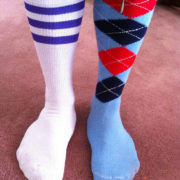Hello everyone! This post is a Part II to last week’s, which you can read here if you missed it.
What happens when you are fighting with your lover and you get either so hurt, or so angry, that you can’t think clearly?
Research by Jaak Panksepp of Washington State University demonstrates that mammals develop a special pathway in the amygdala that lights up when they perceive their mate is unavailable. Panksepp is convinced this special pathway exists in all mammals. So what happens when you feel, most likely without even realizing it, that your connection with your partner is under threat? You are plunged into what he terms “primal panic.” The primal part is due to the absolute need, a primal need, for connection to others–especially our significant others.







